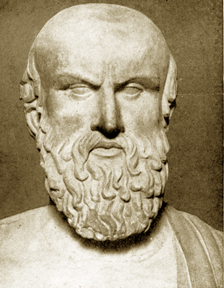Literature - the heartbeat of man
.jpg) When I switched over from law to literature, my father raised his
eyebrows as if to ask: :Are you crazy?" But I never regretted my
decision to become a writer instead of a lawyer. This does not mean that
writers are better than lawyers. Far from it. That's the way the cookie
crumbles! When I switched over from law to literature, my father raised his
eyebrows as if to ask: :Are you crazy?" But I never regretted my
decision to become a writer instead of a lawyer. This does not mean that
writers are better than lawyers. Far from it. That's the way the cookie
crumbles!
My long association with authors has convinced me that literature is
the handmaid of prophecy. In other words, literature interprets human
nature. When government and religious institutions are giving us some
comfortable cushions to sleep on, literature has been awakening the
sleepers with thunder and lightning. When human rights, liberty and
truth are under threat, literature has urged man to raise his voice
against injustice.
Dipping their pens in ink, writers have scorned authoritarian rulers
and malpractices of the religious establishment. Having understood the
human predicament, they have been trying to entertain and enlighten the
reading public. If not for literature where else can you read about
human sorrows and joys?
|

Greek poet Aeschylus |
It is also through literature that we see the gradual growth of
civilisations and also their rapid decline. For instance, we know how
the great civilisations of Greece and Rome crumbled over the last few
centuries.
Literature is not a record of events that took place in history. That
is done better by the historian. A novelist, a poet or a dramatist is
not a gazetteer or a compiler. Literature is also not science. It is the
heartbeat of man. As a result, literature appeals to most literate
people than any other subject.
Literature has soothed human suffering to a great extent. Those who
are not interested in literature may not derive any benefit from it. But
the majority of educated men and women have embraced literature. This is
not surprising because most writers have undergone untold suffering.
Most of them had been stricken by poverty which is often the forcing
ground of genius. Eminent writers have never been camp followers or
political henchmen. Instead, they preferred to undergo suffering, hunger
and want.
Great literature has sprung from human experience. When we read about
Chaucer's pilgrims, moral allegories of Spenser and Bunyan,
Shakespeare's memorable characters or nature worship of William
Wordsworth, we are transported to a different universe. Writers have
widened the horizon of literature to such an extent that we invariably
owe them a great debt.
If not for the poets, who will talk about daffodils, solitary
reapers, nightingales or fairies? Their poems touch our heartstrings and
give us a moment of bliss. Shakespeare's tragedies and comedies have
encapsulated all types of characters. Their thinking and ways of living
have given us a clear picture of human nature.
Although the human race has developed technologically, we still hear
the sad music of humanity. Despite creature comforts modern man is an
unhappy person. This is what literature has been trying to probe. Most
novels and poetry have addressed this issue in depth. At one time of
course, literature was thought to be a rose garden or a landscape of
snowy mountains. However, many writers such as Charles Dickens, Leo
Tolstoy and Victor Hugo have disproved this theory by depicting ordinary
men and women who undergo immense suffering.
Vocabulary plays a major role in literature. Writers may have lofty
ideas, but if their vocabulary is poor, what they write will be
meaningless. If a writer has tasted life's experiences and learned the
meaning of our existence, everything he says will be of importance. The
water of a river takes on the colour of the soil through which it flows.
Similarly, what a writer says will be coloured by his words.
Thus, every writer has his own way of clothing his experience. This
is called the style. The word itself comes from the Latin word 'stylo'
meaning 'pen'. A competent graphologist can tell us something about the
character of a writer. As hands written books are no longer available,
we are unable to analyse their handwriting. Instead, we can analyse
their style.
All writers represent their age. They are creators of their
environment. The writer may be stirred by the struggles of his
countrymen. He may also be influenced by the beauty of nature. For
instance, ancient Greeks thought that liberty was the most sacred
heritage of man. Aeschylus, Sophocles and Euripides tell us how Greeks
interpreted life. Aceschylus himself was a warrior who fought at
Salamis. When the battle was over, his heart was filled with poetic
utterances.
The dominant power of literature, today is the novel. It reflects men
and manners. The modern novel is not didactic as in the past. Today it
is a more complicated creation. The subject matter of the novel is
endless. Sometimes, the novel may have the ethical quality of fiction.
The old Greek tragedians showed that justice will never leave a
sinning soul. When a man steps into evil, he sets in motion all the
invisible mechanisms of the universe to punish him.
Thus, every thief, every killer, and every fraudster ultimately
becomes a repentant sinner. We learn all this through the marvel of
literature.n |

